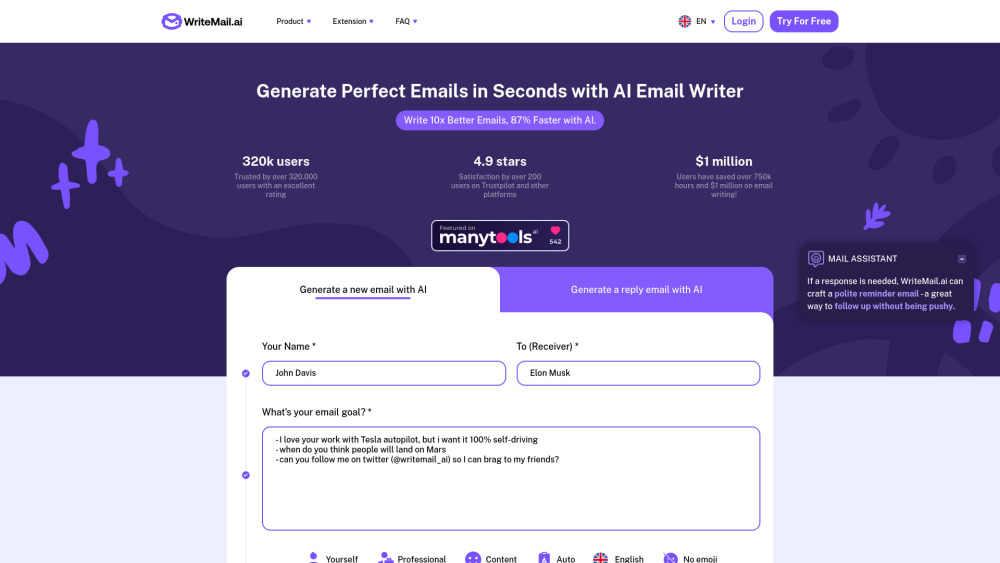The Transformative Role of AI in Software Development: Key Considerations for DevSecOps Leaders
AI is at a pivotal juncture in software development, prompting organizations and their DevSecOps leaders to advocate for effective and responsible AI use.
Developers and the wider DevSecOps community must prepare to tackle four significant global trends in AI: the growing integration of AI in code testing, ongoing threats to intellectual property (IP) and privacy, a rise in AI bias, and, despite these challenges, an increased reliance on AI technologies. By aligning with these trends, organizations can set themselves and their DevSecOps teams up for success. Conversely, ignoring these developments may hinder innovation or derail business strategies.
From Luxury to Standard: AI Becomes Essential for All
Organizations will increasingly adopt AI as a standard practice, not just a luxury, across all products and services. Utilizing DevSecOps to incorporate AI capabilities within software development will be crucial for fostering innovation and enhancing customer value in an AI-driven marketplace.
Insights from discussions with GitLab customers and industry trends indicate that more than two-thirds of businesses will embed AI functionalities into their offerings by the end of 2024. Companies are transitioning from testing the waters of AI to becoming AI-centric.
To prepare for this shift, organizations must invest in refining software development governance while emphasizing continuous learning and adaptation in AI technologies. This will require cultural and strategic changes, prompting a reevaluation of business processes, product development, and customer engagement strategies. Training will be foundational; in our latest Global DevSecOps Report, 81% of respondents expressed a desire for more training on effective AI usage.
As AI's sophistication grows and its integration into business operations becomes more prevalent, companies must navigate the ethical and societal implications of AI-driven solutions, ensuring they deliver positive impacts for customers and communities.
AI's Dominance in Code Testing Workflows
AI's evolution within DevSecOps is revolutionizing code testing workflows. Research from GitLab reveals that currently, only 41% of DevSecOps teams utilize AI for automated test generation. However, this figure is anticipated to rise to 80% by the end of 2024, with close to 100% expected within two years.
As organizations implement AI tools into their workflows, they face the challenge of adjusting their existing processes to gain the efficiency and scalability that AI offers. This transition promises substantial boosts in productivity and accuracy, but demands meaningful changes to traditional testing roles and practices. Training DevSecOps teams in AI oversight is essential, ensuring the integration of AI into code testing enhances software quality and reliability.
Moreover, this shift will redefine the quality assurance role, pushing professionals to evolve their skill sets to effectively oversee AI-powered testing systems. Continuous human oversight remains critical, as AI systems will require ongoing monitoring and guidance to function optimally.
Increasing Threats to IP and Privacy in Software Security
The uptick in AI-driven code creation heightens the risk of vulnerabilities, potentially resulting in significant IP leakage and data privacy breaches affecting software security, corporate confidentiality, and customer data protection.
To mitigate these risks, businesses must prioritize stringent IP and privacy protections within their AI adoption strategies, emphasizing transparency regarding AI applications. Robust data governance policies and advanced detection systems are vital for identifying and addressing AI-related risks. Fostering awareness through employee training and nurturing a proactive risk management culture are essential to safeguard IP and data privacy.
The security challenges posed by AI once again highlight the critical need for DevSecOps practices throughout the software development life cycle. Security and privacy must be integrated from the start, aligning with the shift-left approach in DevSecOps. This ensures that AI innovations do not compromise security and privacy.
Addressing AI Bias Before Improvement Can Occur
2023 marked a defining moment for AI, drawing attention to inherent biases within algorithms. AI tools trained on internet data accumulate the biases present in online content, leading to both exacerbated and novel biases that undermine fairness and impartiality in DevSecOps.
To combat pervasive bias, developers should diversify training datasets, incorporate fairness metrics, and implement bias-detection tools within AI models. Exploring AI designed for specific use cases is another important avenue. Utilizing feedback mechanisms to evaluate AI against clear ethical principles—often referred to as a “constitution”—can guide responsible AI use.
Organizations must establish strong data governance frameworks to ensure the quality and reliability of data used in AI systems. Given that AI systems depend heavily on the data they process, poor-quality data can result in inaccurate outputs and misguided decisions.
The tech community must collectively champion unbiased AI development through methods like constitutional AI or reinforcement learning that includes human feedback aimed at reducing bias. This requires concerted efforts from both AI providers and users to foster responsible AI development that prioritizes fairness and transparency.
Preparing for the AI Revolution in DevSecOps
As businesses accelerate their transition to AI-centric models, the stakes extend beyond competitiveness—they hinge on survival. Leaders and DevSecOps teams must confront the anticipated challenges posed by AI adoption, including privacy threats, trust in AI outputs, and cultural resistance.
Together, these developments signify a transformative era in software development and security. Successfully navigating this landscape demands a comprehensive approach that encompasses ethical AI development, vigilant security practices, and unwavering commitments to privacy. The actions that organizations and their DevSecOps teams undertake now will shape the future of AI within the DevSecOps domain, ensuring its ethical, secure, and beneficial implementation.





